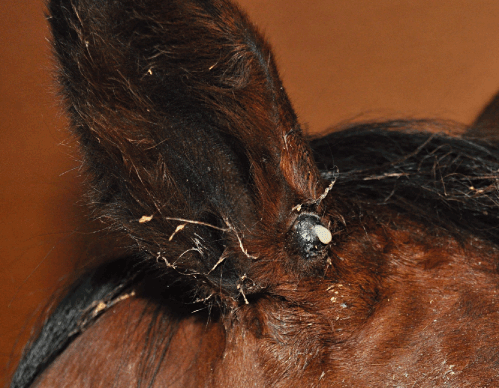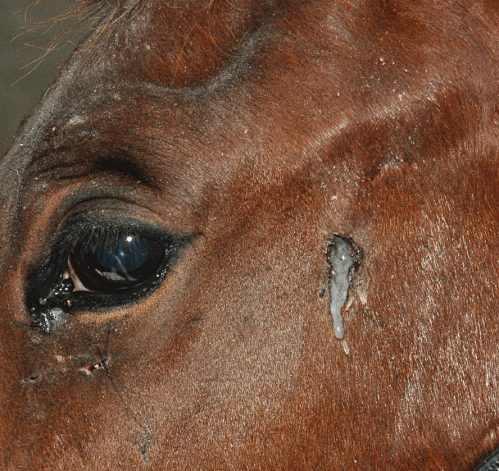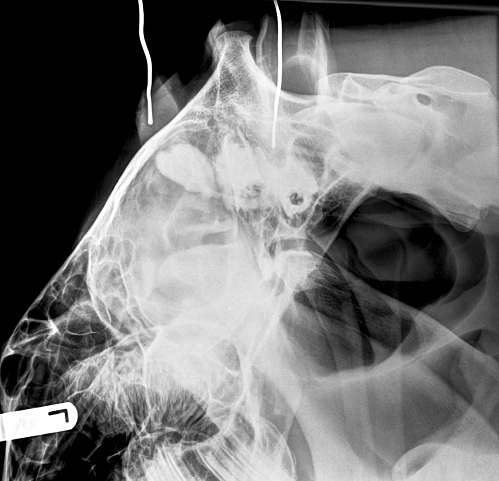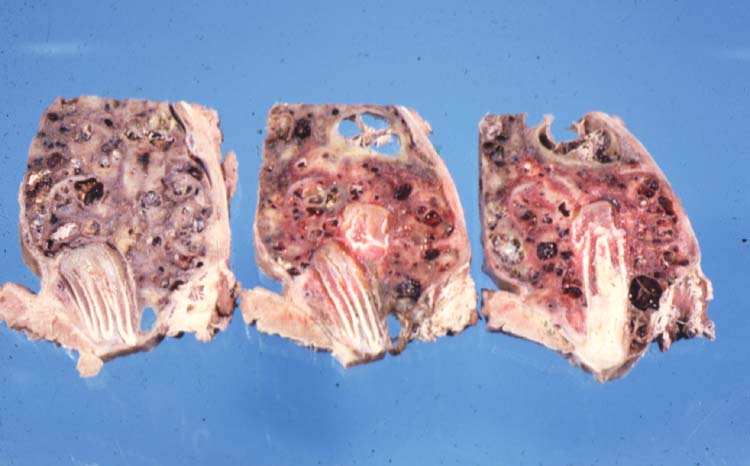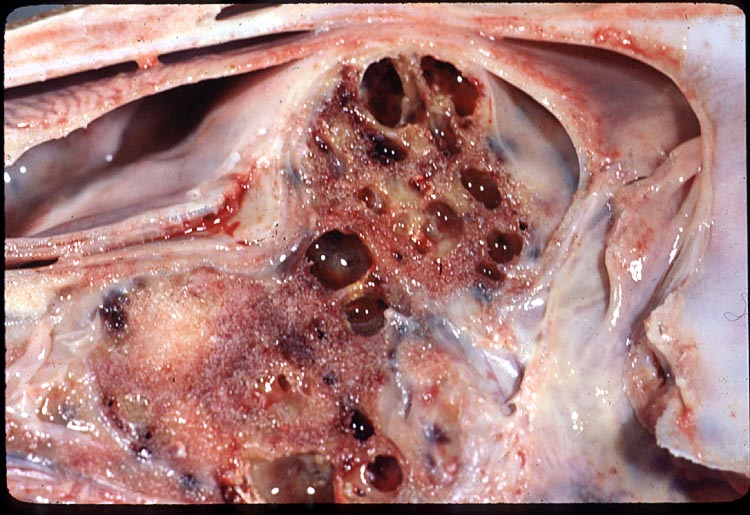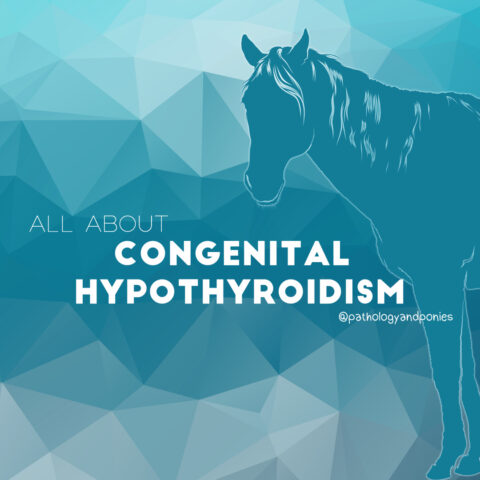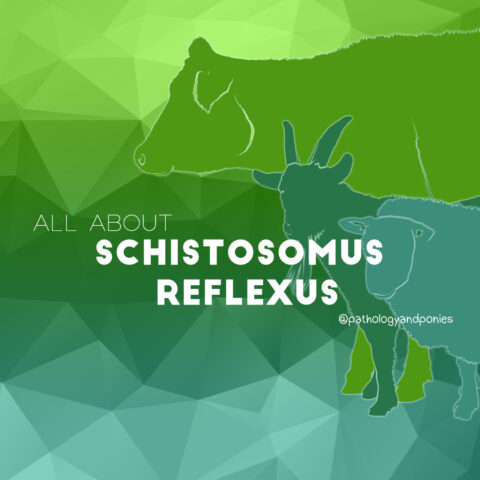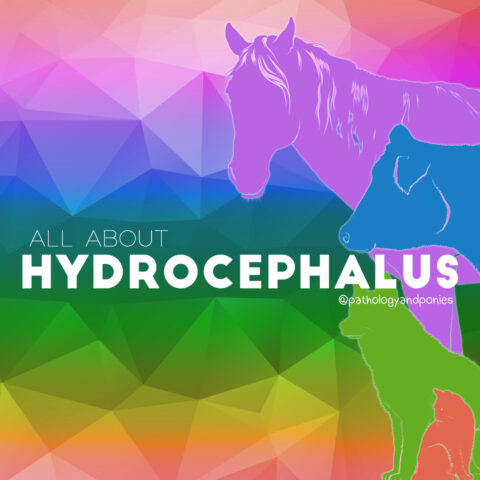Today’s path rounds are on 𝐞𝐚𝐫 𝐭𝐞𝐞𝐭𝐡, more scientifically known as 𝐝𝐞𝐧𝐭𝐢𝐠𝐞𝐫𝐨𝐮𝐬 𝐜𝐲𝐬𝐭𝐬!
𝐖𝐡𝐚𝐭 𝐢𝐬 𝐢𝐭?
𝐃𝐞𝐧𝐭𝐢𝐠𝐞𝐫𝐨𝐮𝐬 𝐜𝐲𝐬𝐭𝐬 are a form of 𝐡𝐞𝐭𝐞𝐫𝐨𝐭𝐨𝐩𝐢𝐜 𝐩𝐨𝐥𝐲𝐨𝐝𝐨𝐧𝐭𝐢𝐚, which is a fancy term for an extra tooth or teeth in a location outside of the normal dental arcade. Ear teeth, as the name suggests, tend to be found close to the base of the ear!
𝐖𝐡𝐨 𝐠𝐞𝐭𝐬 𝐢𝐭?
Horses most commonly get this condition.
𝐖𝐡𝐚𝐭 𝐜𝐚𝐮𝐬𝐞𝐬 𝐢𝐭?
Ear teeth form during embryonic development, when a cystic structure that would normally disappear as the embryo grows ends up being retained in the fully developed animal. This structure contains nests of cells that are part of tooth development, so as the animal continues to develop, one or more teeth form within the cyst. Weird!
𝐖𝐡𝐲 𝐢𝐬 𝐭𝐡𝐢𝐬 𝐚 𝐩𝐫𝐨𝐛𝐥𝐞𝐦?
Generally these teeth don’t cause any issues, however the cystic structure that contains them can sometimes form a 𝐟𝐢𝐬𝐭𝐮𝐥𝐚 (draining tract) to the skin surface. This hole can sometimes ooze fluid, which disturbs owners and can impact the aesthetics of the animal.
𝐇𝐨𝐰 𝐢𝐬 𝐢𝐭 𝐝𝐢𝐚𝐠𝐧𝐨𝐬𝐞𝐝?
The best method of diagnosis is taking an X-ray of the skull to identify teeth in a location where teeth should not be! That X-ray, combined with the clinical signs and history, confirms the diagnosis of a dentigerous cyst.
𝐇𝐨𝐰 𝐢𝐬 𝐢𝐭 𝐭𝐫𝐞𝐚𝐭𝐞𝐝?
While most owners choose to leave these cysts alone, some owners will want them removed. These cysts can be removed surgically with great success, and the horse can resume its horsey life free of a toothy ear.
𝐏𝐡𝐨𝐭𝐨𝐬
1-2) Two examples of the fistulas of dentigerous cysts oozing fluid. Gross.
3) A cool X-ray where they put probes into the fistulas of a horse with two dentigerous cysts, so you can see the probes following the fistula right to the weird teeth!4) A dentigerous cyst on a cross-section of the head.
5) A dentigerous cyst after being removed from the head, showing the teeth that grew!
𝐒𝐨𝐮𝐫𝐜𝐞𝐬
Maxie, G. Jubb, Kennedy and Palmer’s Pathology of Domestic Animals, Volume 2. Sixth Edition.
Barakzai SZ, Dixon PM. Dentigerous Cysts. Equine Veterinary Education 2012;24(11):579-581.
Smith LCR, Zedler ST, Gester S, Keane SE, Goodwin W, van Eps AW. Bilateral dentigerous cysts (heterotopic polyodontia) in a yearling Standardbred colt. Equine Veterinary Education 2012;24(11):575-578.
Photos 1-2 © LCR Smith et al.
Photo 3 © SZ Barakzai et al.
Photos 4-5 © Noah’s Arkive contributor King licensed under CC BY-SA 4.0.

